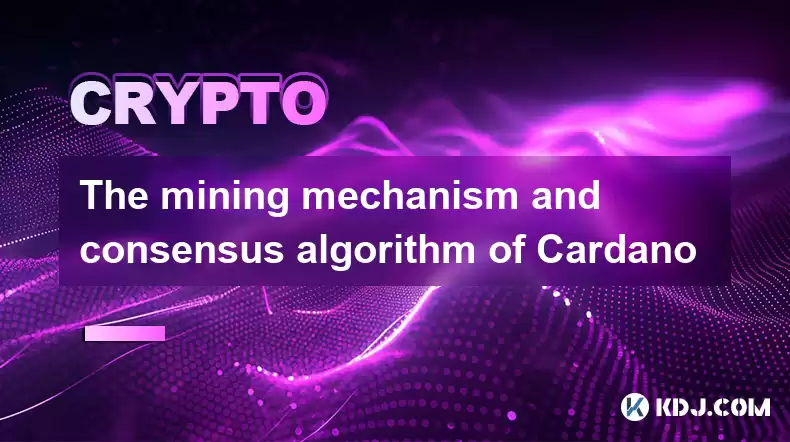-
 Bitcoin
Bitcoin $119700
0.53% -
 Ethereum
Ethereum $4508
5.39% -
 XRP
XRP $3.270
2.86% -
 Tether USDt
Tether USDt $1.000
0.00% -
 BNB
BNB $831.0
2.92% -
 Solana
Solana $189.6
6.89% -
 USDC
USDC $0.9999
-0.01% -
 Dogecoin
Dogecoin $0.2350
2.92% -
 TRON
TRON $0.3500
1.34% -
 Cardano
Cardano $0.8420
6.73% -
 Chainlink
Chainlink $23.26
8.42% -
 Hyperliquid
Hyperliquid $44.42
1.44% -
 Stellar
Stellar $0.4512
3.16% -
 Sui
Sui $3.895
5.15% -
 Bitcoin Cash
Bitcoin Cash $618.7
5.88% -
 Hedera
Hedera $0.2601
4.43% -
 Ethena USDe
Ethena USDe $1.001
0.01% -
 Avalanche
Avalanche $24.45
4.90% -
 Litecoin
Litecoin $128.1
5.41% -
 Toncoin
Toncoin $3.454
1.64% -
 UNUS SED LEO
UNUS SED LEO $9.065
0.44% -
 Shiba Inu
Shiba Inu $0.00001359
3.41% -
 Uniswap
Uniswap $11.42
1.78% -
 Polkadot
Polkadot $4.165
6.36% -
 Cronos
Cronos $0.1664
-0.50% -
 Ethena
Ethena $0.8108
1.79% -
 Dai
Dai $1.000
0.00% -
 Pepe
Pepe $0.00001213
5.22% -
 Bitget Token
Bitget Token $4.438
0.25% -
 Aave
Aave $313.3
5.02%
The mining mechanism and consensus algorithm of Cardano
Cardano uses Ouroboros, a Proof-of-Stake system where users stake ADA tokens to validate transactions, earning rewards proportionally to their stake and chosen pool's performance, unlike energy-intensive Bitcoin mining.
Mar 07, 2025 at 01:00 pm

Key Points:
- Cardano utilizes a Proof-of-Stake (PoS) consensus mechanism called Ouroboros.
- Mining in Cardano is not the same as in Proof-of-Work (PoW) systems like Bitcoin. Instead of solving complex mathematical problems, users stake their ADA tokens to validate transactions and produce new blocks.
- Ouroboros is designed for scalability, security, and energy efficiency.
- Staking ADA requires holding a certain amount of ADA and delegating it to a stake pool.
- Rewards for staking are distributed proportionally based on the amount of ADA staked and the performance of the chosen stake pool.
- The Cardano network's security relies on the collective participation of stake pool operators and delegators.
Cardano's Mining Mechanism: A Deep Dive into Proof-of-Stake
Unlike Bitcoin's energy-intensive Proof-of-Work (PoW) mechanism, Cardano employs a Proof-of-Stake (PoS) consensus algorithm known as Ouroboros. This fundamental difference significantly impacts how the network operates and secures transactions. In PoW systems, miners compete to solve complex cryptographic puzzles, consuming vast amounts of energy. Cardano's PoS approach eliminates this energy-intensive process.
Understanding Ouroboros: Cardano's Consensus Algorithm
Ouroboros is a scientifically peer-reviewed consensus mechanism designed to address the limitations of traditional PoW systems. Its key features include improved scalability, enhanced security, and significantly reduced energy consumption. The algorithm ensures that only participants who have staked ADA tokens can participate in the validation of transactions and creation of new blocks. This process is far more efficient than PoW's energy-intensive competition.
How to Participate in Cardano's Staking Mechanism
Participation in Cardano's network doesn't involve mining in the traditional sense. Instead, users "stake" their ADA tokens to support the network's security and earn rewards. This involves selecting a stake pool to delegate your ADA to. Stake pools are operated by individuals or entities who run the necessary infrastructure to validate transactions.
- Choose a Stake Pool: Research and select a stake pool based on factors like performance, fees, and reputation. A well-performing pool is crucial for maximizing your rewards.
- Delegate Your ADA: Once you've chosen a pool, you delegate your ADA to it. This involves transferring your ADA to the pool's designated address. The amount you stake directly influences your potential rewards.
- Earn Rewards: As your staked ADA helps validate transactions, you earn rewards in the form of newly minted ADA. The amount you earn depends on the total amount staked and the pool's performance. Rewards are typically distributed periodically.
- Unstake Your ADA: At any point, you can unstake your ADA and withdraw it back to your wallet. However, there is usually a short waiting period before you can access your funds.
Security and Decentralization in Cardano's PoS System
Cardano's decentralized nature is a key aspect of its security. The network's security isn't reliant on a single entity or a small group of powerful miners. Instead, it relies on the collective participation of numerous stake pool operators and delegators. This distributed approach makes it significantly more resistant to attacks and censorship. The larger the number of participants, the stronger and more secure the network becomes.
The Role of Stake Pools in Cardano's Ecosystem
Stake pools play a crucial role in Cardano's operation. They are responsible for validating transactions and creating new blocks. They act as nodes on the network, contributing to the overall security and efficiency. Choosing a reliable stake pool is essential for maximizing your rewards and contributing to the network's health.
Understanding Cardano's Block Creation Process
In Cardano, block creation isn't a race like in PoW systems. Instead, it's a probabilistic process based on the amount of ADA staked. The more ADA a stake pool controls, the higher its probability of creating the next block. This ensures that the process is fair and proportional to the stake held.
Energy Efficiency of Cardano's PoS System
One of the significant advantages of Cardano's PoS system is its energy efficiency. Unlike PoW systems that consume vast amounts of energy, Cardano's PoS mechanism has a significantly smaller environmental footprint. This makes it a more sustainable and environmentally responsible cryptocurrency.
Scalability and Future Developments in Cardano
Cardano's developers are continually working on improving the network's scalability and performance. Through ongoing research and development, Cardano aims to enhance its capacity to handle a growing number of transactions, ensuring its long-term viability.
Frequently Asked Questions:
Q: Is it risky to stake my ADA?
A: Staking ADA carries inherent risks, similar to holding any cryptocurrency. However, choosing a reputable stake pool and understanding the process can mitigate these risks.
Q: How much ADA do I need to stake?
A: There's no minimum amount of ADA required to stake, but larger stakes generally lead to proportionally higher rewards. Many pools have minimum delegation amounts.
Q: How often are staking rewards paid?
A: The frequency of reward payouts varies depending on the chosen stake pool. Some pools pay out daily, while others pay out weekly or monthly.
Q: What are the fees associated with staking?
A: Stake pools typically charge a small fee for their services, which is deducted from your staking rewards. This fee helps cover the costs of running the pool's infrastructure.
Q: Can I unstake my ADA at any time?
A: Yes, you can unstake your ADA at any time, but there's usually a short waiting period (typically a few epochs) before you can access your funds.
Q: What is the difference between a stake pool and a mining pool?
A: Mining pools are used in Proof-of-Work systems, where miners collaborate to solve complex mathematical problems. Stake pools in Cardano's PoS system validate transactions and produce blocks based on the amount of staked ADA. They are fundamentally different concepts.
Disclaimer:info@kdj.com
The information provided is not trading advice. kdj.com does not assume any responsibility for any investments made based on the information provided in this article. Cryptocurrencies are highly volatile and it is highly recommended that you invest with caution after thorough research!
If you believe that the content used on this website infringes your copyright, please contact us immediately (info@kdj.com) and we will delete it promptly.
- Unich's OTC Exchange: Surging with $1.2B Volume – What's the Hype?
- 2025-08-13 02:50:11
- MoonBull's Explosive Moves: Your Crypto Whitelist Ticket to Ride!
- 2025-08-13 02:30:11
- MAGACOIN Finance: Don't Miss the Presale Bonus!
- 2025-08-13 02:30:11
- Trump's Crypto Kingdom: $2.4 Billion and Counting
- 2025-08-13 02:50:11
- Solana, LSTs, and SEC Approval: A New Dawn for Crypto?
- 2025-08-13 02:55:12
- Bitcoin's Profit Surge: Unpacking the BTC Value Boom
- 2025-08-13 02:55:12
Related knowledge

How to purchase Aragon (ANT)?
Aug 09,2025 at 11:56pm
Understanding Aragon (ANT) and Its PurposeAragon (ANT) is a decentralized governance token that powers the Aragon Network, a platform built on the Eth...

Where to trade Band Protocol (BAND)?
Aug 10,2025 at 11:36pm
Understanding the Role of Private Keys in Cryptocurrency WalletsIn the world of cryptocurrency, a private key is one of the most critical components o...

What is the most secure way to buy Ocean Protocol (OCEAN)?
Aug 10,2025 at 01:01pm
Understanding Ocean Protocol (OCEAN) and Its EcosystemOcean Protocol (OCEAN) is a decentralized data exchange platform built on blockchain technology,...

How to invest in Kyber Network Crystal v2 (KNC)?
Aug 12,2025 at 05:21pm
Understanding Kyber Network Crystal v2 (KNC)Kyber Network is a decentralized liquidity hub built on the Ethereum blockchain that enables instant token...

Where can I buy UMA (UMA)?
Aug 07,2025 at 06:42pm
Understanding UMA and Its Role in Decentralized FinanceUMA (Universal Market Access) is an Ethereum-based decentralized finance (DeFi) protocol design...

What exchanges offer Gnosis (GNO)?
Aug 12,2025 at 12:42pm
Overview of Gnosis (GNO) and Its Role in the Crypto EcosystemGnosis (GNO) is a decentralized prediction market platform built on the Ethereum blockcha...

How to purchase Aragon (ANT)?
Aug 09,2025 at 11:56pm
Understanding Aragon (ANT) and Its PurposeAragon (ANT) is a decentralized governance token that powers the Aragon Network, a platform built on the Eth...

Where to trade Band Protocol (BAND)?
Aug 10,2025 at 11:36pm
Understanding the Role of Private Keys in Cryptocurrency WalletsIn the world of cryptocurrency, a private key is one of the most critical components o...

What is the most secure way to buy Ocean Protocol (OCEAN)?
Aug 10,2025 at 01:01pm
Understanding Ocean Protocol (OCEAN) and Its EcosystemOcean Protocol (OCEAN) is a decentralized data exchange platform built on blockchain technology,...

How to invest in Kyber Network Crystal v2 (KNC)?
Aug 12,2025 at 05:21pm
Understanding Kyber Network Crystal v2 (KNC)Kyber Network is a decentralized liquidity hub built on the Ethereum blockchain that enables instant token...

Where can I buy UMA (UMA)?
Aug 07,2025 at 06:42pm
Understanding UMA and Its Role in Decentralized FinanceUMA (Universal Market Access) is an Ethereum-based decentralized finance (DeFi) protocol design...

What exchanges offer Gnosis (GNO)?
Aug 12,2025 at 12:42pm
Overview of Gnosis (GNO) and Its Role in the Crypto EcosystemGnosis (GNO) is a decentralized prediction market platform built on the Ethereum blockcha...
See all articles

























































































